Ambassadors for Racial Justice
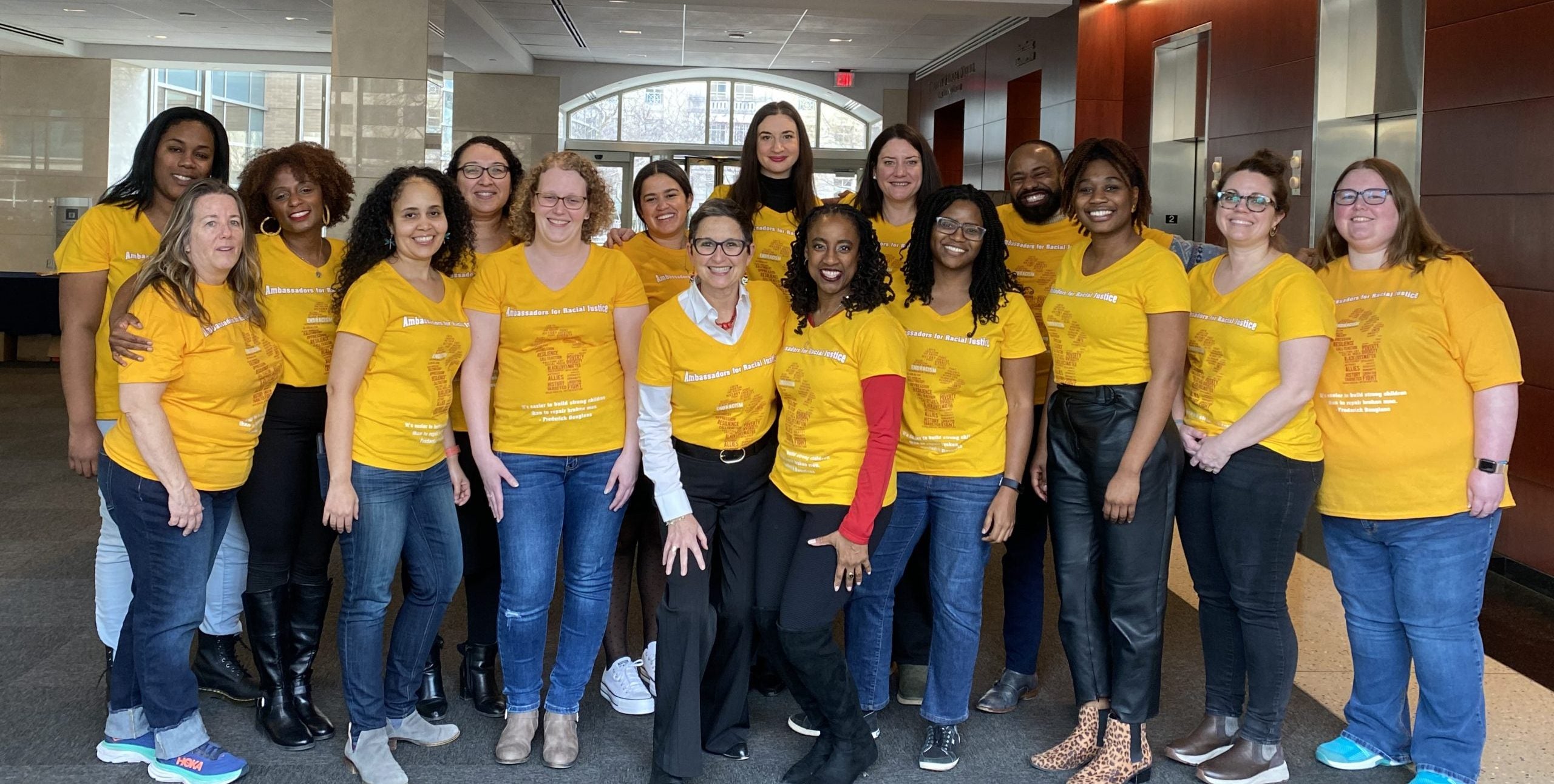
The Ambassadors for Racial Justice (ARJ) is a program—sponsored by the Georgetown Juvenile Justice Initiative and the Gault Center—for defenders who are committed to challenging racial injustice in the juvenile legal system. The program aims to grow the number of juvenile defenders and juvenile justice advocates equipped to develop strategies to combat racial inequities in their respective jurisdictions and to facilitate difficult conversations on race.
We aspire that our Ambassadors, dispersed throughout the nation, will partner with organizations, government agencies, nonprofits, and schools to host and lead trainings related to racial justice, as well as spearhead legislative reform and social media campaigns that involve juvenile justice stakeholders and youth within their communities. The program expects to embolden a group of well-trained, diverse juvenile defenders and juvenile justice advocates who may go on to become policy advocates, judges, and legislators, to represent minority viewpoints, empower communities of color, and systemically reform our juvenile legal system. We recognize that combating systemic racial inequities within the juvenile legal system requires efforts outside of litigation and requires advocates in various spaces. We believe that supporting a cohort of defenders to engage in work that transcends beyond legal advocacy will allow for long-term sustainable results within the juvenile legal system.
As part of a year-long program, the Ambassadors are required to complete capstone projects of their own design. They may host/lead trainings related to racial justice for juvenile defenders in their local jurisdiction; spearhead legislative reform in their local jurisdiction; prepare a social media campaign related to racial equity and youth rights; or create an internship program that encourages students of color to pursue careers in juvenile defense work. In doing so, we aspire to have youth voices integrated in each project through collaboration with defenders.
The ARJ program is part of the racial justice initiatives launched by Professor Kristin Henning and the Juvenile Justice Initiative (JJI) team in partnership with the Gault Center. In 2018, JJI launched and expanded a number of racial justice projects designed to assist youth of color in the juvenile legal system who face significant hurdles to success and to improve the juvenile defense practice by training defenders on emerging racial justice issues such as implicit racial bias and race and adolescence.
Applications to become an Ambassador are available each autumn. Please sign up for our email list to be notified when the application is released. If you have questions, please email Rebba Omer at ro295@georgetown.edu
Meet the 2024 Ambassadors for Racial Justice
 Oluremi “Remi” Abiodun is a staff attorney at the Louisiana Center for Children’s Rights. She is a proud, native New Orleanian who practices law where she grew up and where many in her family have been incarcerated. Remi joined LCCR in September of 2021 as an Equal Justice Works Fellow. She graduated Magna Cum Laude with a BA in Psychology and a minor in Spanish from Spelman College and a joint Juris Doctor and Master of Social Work from Florida State University (FSU) College of Law. While at FSU Law, Remi worked as a student practitioner in the Public Interest Law Center’s Child Advocacy Clinic, the Emory Summer Child Advocacy Program, and as the Florida Department of Children and Families’ Gubernatorial Fellow. Prior to law school, Remi spent three years teaching sixth-grade math at a Title One school in New Orleans.
Oluremi “Remi” Abiodun is a staff attorney at the Louisiana Center for Children’s Rights. She is a proud, native New Orleanian who practices law where she grew up and where many in her family have been incarcerated. Remi joined LCCR in September of 2021 as an Equal Justice Works Fellow. She graduated Magna Cum Laude with a BA in Psychology and a minor in Spanish from Spelman College and a joint Juris Doctor and Master of Social Work from Florida State University (FSU) College of Law. While at FSU Law, Remi worked as a student practitioner in the Public Interest Law Center’s Child Advocacy Clinic, the Emory Summer Child Advocacy Program, and as the Florida Department of Children and Families’ Gubernatorial Fellow. Prior to law school, Remi spent three years teaching sixth-grade math at a Title One school in New Orleans.
“‘Until the lion tells the story, the hunter will always be the hero.’ It is truly an honor to represent my clients and tell their stories to provide context and to challenge and change the narratives about them as we navigate this awful system. Our children are beautiful, smart, loving, hilarious, fun, and so much more than the worst thing they have ever been accused of doing.”
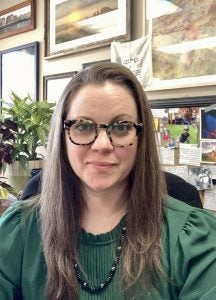 Rachel Antonuccio is a graduate of Cornell College and the University of Iowa College of Law. She spent the first five years of her career in private practice in Iowa City, with a focus on juvenile law, indigent criminal defense, immigration law, and mediation. Rachel then served as the juvenile attorney in the Iowa City Public Defender’s Office for seven years, primarily representing parents in Child in Need of Assistance and termination actions and juveniles criminally charged as adults. At the beginning of 2021, Rachel became the supervising attorney of the Waterloo Juvenile Public Defender’s Office. The office represents children in delinquencies, children and parents in Child in Need of Assistance and termination actions, and adult criminal defendants.
Rachel Antonuccio is a graduate of Cornell College and the University of Iowa College of Law. She spent the first five years of her career in private practice in Iowa City, with a focus on juvenile law, indigent criminal defense, immigration law, and mediation. Rachel then served as the juvenile attorney in the Iowa City Public Defender’s Office for seven years, primarily representing parents in Child in Need of Assistance and termination actions and juveniles criminally charged as adults. At the beginning of 2021, Rachel became the supervising attorney of the Waterloo Juvenile Public Defender’s Office. The office represents children in delinquencies, children and parents in Child in Need of Assistance and termination actions, and adult criminal defendants.
Rachel currently serves on the ISBA Juvenile Law committee and the Constance Cohen Juvenile Practice Series committee. She is a member of the Iowa Supreme Court Rules of Juvenile Procedure Advisory Committee and served as co-chair of the Mental Health/Substance Abuse Subcommittee for the Iowa Supreme Court’s Juvenile Justice Task Force. Rachel created and operates the Black Hawk County Drug Diversion Program, a program for people charged with drug possession offenses that gives participants an opportunity to get treatment and get their charges dismissed and expunged. Rachel is a proud resident of Waterloo, IA, where she lives with her husband, their four-year-old daughter, and their three-year-old son.
“When we identify where our privilege intersects with somebody else’s oppression, we’ll find our opportunities to make real change.” – Ijeoma Oluo, So You Want to Talk About Race
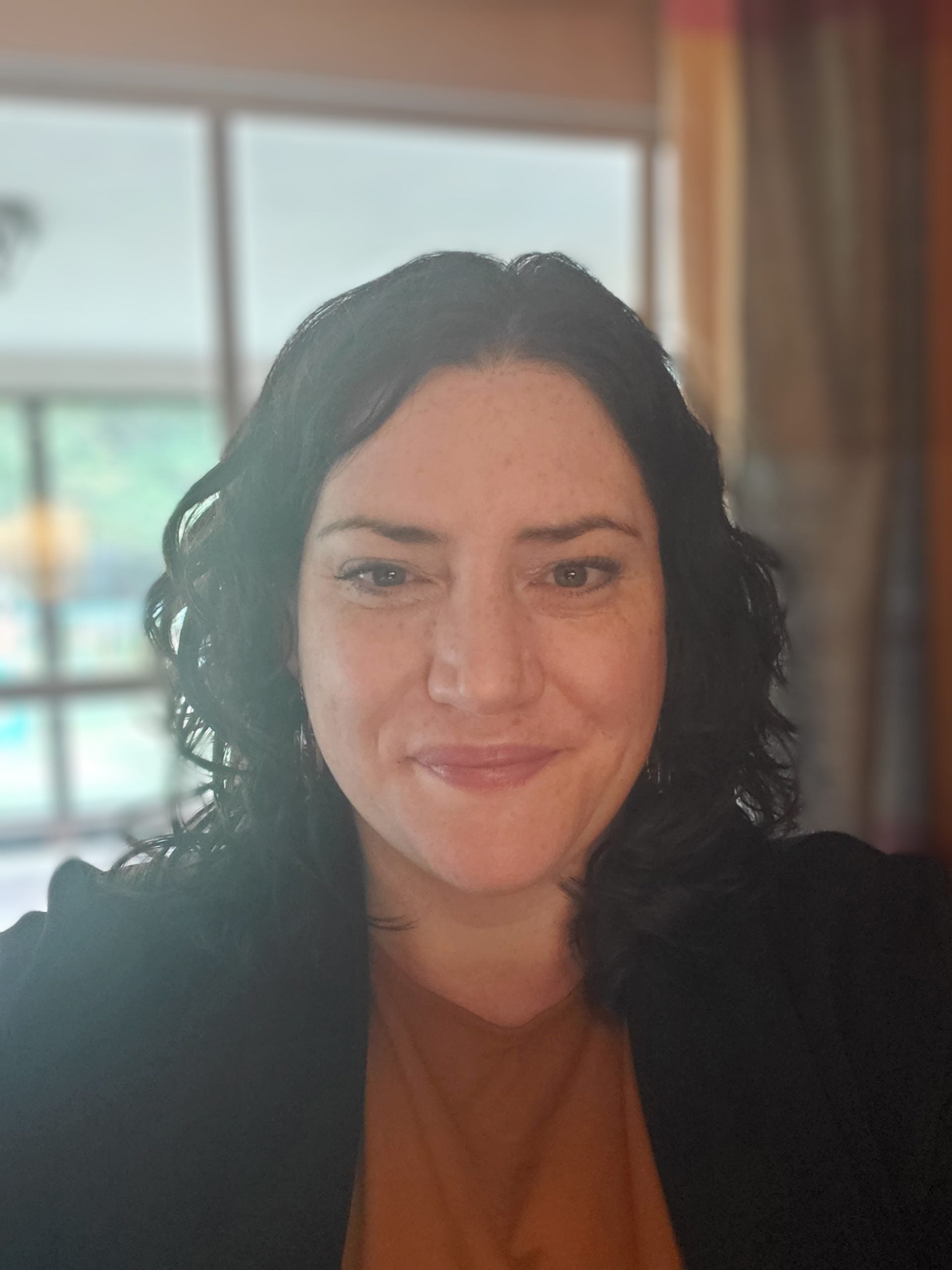 Jamie Anne Bennett is the Attorney in Charge of the Youth Advocacy Division in Worcester County, Massachusetts. She has been a public defender for 17 years, beginning with adult representation moving to youth representation in 2014. Jamie currently supervises three attorneys and a social service advocate in her office. The Youth Advocacy Division believes in great legal AND life outcomes for its clients. Thus, YAD utilizes its social service advocate to assist in building trusting relationships and making referrals ranging from therapy treatment providers to gym memberships. Youth Advocacy Division attorneys are also trained in education advocacy for their clients.
Jamie Anne Bennett is the Attorney in Charge of the Youth Advocacy Division in Worcester County, Massachusetts. She has been a public defender for 17 years, beginning with adult representation moving to youth representation in 2014. Jamie currently supervises three attorneys and a social service advocate in her office. The Youth Advocacy Division believes in great legal AND life outcomes for its clients. Thus, YAD utilizes its social service advocate to assist in building trusting relationships and making referrals ranging from therapy treatment providers to gym memberships. Youth Advocacy Division attorneys are also trained in education advocacy for their clients.
Jamie is the co-chair of the Worcester County JDAI Committee and the Worcester Bar Association Juvenile Law Section. She is also a Community-Based Interventions (CBI) Subcommittee Member on the Juvenile Justice Policy and Data Board. She was a founding member of the Youth Defenders Dismantling Racism committee within the Youth Advocacy Division. Jamie loves to assist with new lawyer training and provides Know the Law training within the community. She is a friend of the board for the Massachusetts Society for a World Free of Sexual Harm by Youth (MASOC), whose mission is to ensure that children and adolescents with problematic or abusive sexual behaviors live healthy, safe, and productive lives. Jamie graduated from Bowdoin College and received her J.D. from Northeastern University School of Law.
For fun, Jamie loves to travel with her family. She is the proud mom of a 5th grade son, and she coaches him in basketball. She loves March Madness basketball and binge-watching a good show.
“A democracy cannot thrive where power remains unchecked and justice is reserved for a select few. Ignoring these cries and failing to respond to this movement is simply not an option — for peace cannot exist where justice is not served.” – John Lewis, commentating on the George Floyd Justice in Policing Act
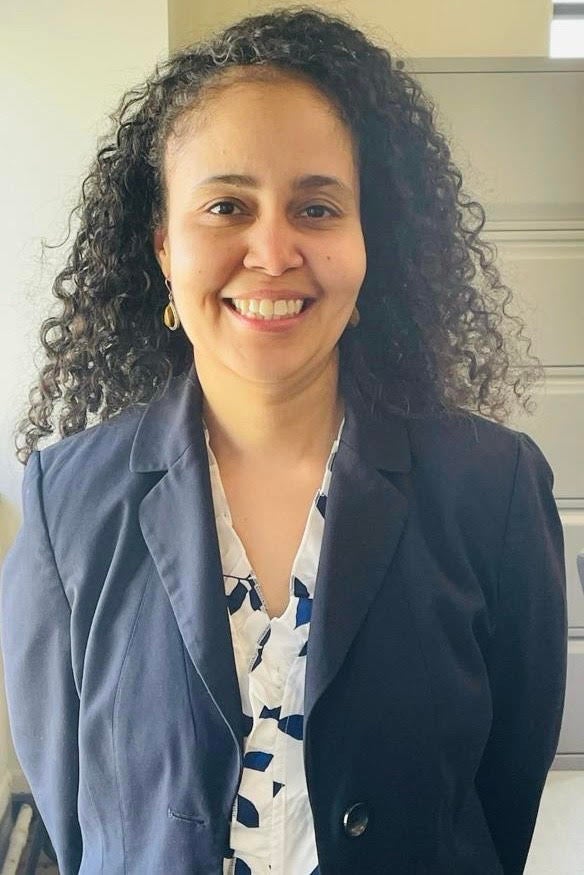 Yasmin Davis is an Adolescent Intervention and Diversion Attorney at The Legal Aid Society where she specializes in the representation of juvenile and adolescent offenders in Supreme Court in the Bronx, where she was born and raised. She joined The Legal Aid Society’s Criminal Defense Practice in 2011 and has worked in multiple boroughs in NYC representing youth and adults in court proceedings in criminal and supreme court. In 2014, she took a sabbatical and joined the New York State Defenders Association (NYSDA) as the Director of the Public Defense Investigation Support Project because of her passion for investigations. While at NYSDA she worked to increase the quality and quantity of investigations completed in defender offices across the state. She returned to The Legal Aid Society in their newly formed training unit as the Trainer of Investigator and Paralegal Staff, where she did training for new attorneys, investigators and paralegals.
Yasmin Davis is an Adolescent Intervention and Diversion Attorney at The Legal Aid Society where she specializes in the representation of juvenile and adolescent offenders in Supreme Court in the Bronx, where she was born and raised. She joined The Legal Aid Society’s Criminal Defense Practice in 2011 and has worked in multiple boroughs in NYC representing youth and adults in court proceedings in criminal and supreme court. In 2014, she took a sabbatical and joined the New York State Defenders Association (NYSDA) as the Director of the Public Defense Investigation Support Project because of her passion for investigations. While at NYSDA she worked to increase the quality and quantity of investigations completed in defender offices across the state. She returned to The Legal Aid Society in their newly formed training unit as the Trainer of Investigator and Paralegal Staff, where she did training for new attorneys, investigators and paralegals.
Prior to practicing in New York, Yasmin was a Staff Attorney at the Public Defender Service for the District of Columbia where she represented clients in juvenile proceedings in D.C. Superior Court. She is a graduate of CUNY School of Law, where she was on the City University of New York Law Review. Her commitment and dedication to criminal defense started long before law school when she interned at the Montgomery County Public Defender’s Office as an investigative intern while in college, leading her to work as an investigator at The Bronx Defenders for three years prior to attending law school.
“You have to act as if it were possible to radically transform the world and you have to do it all the time.” – Angela Davis
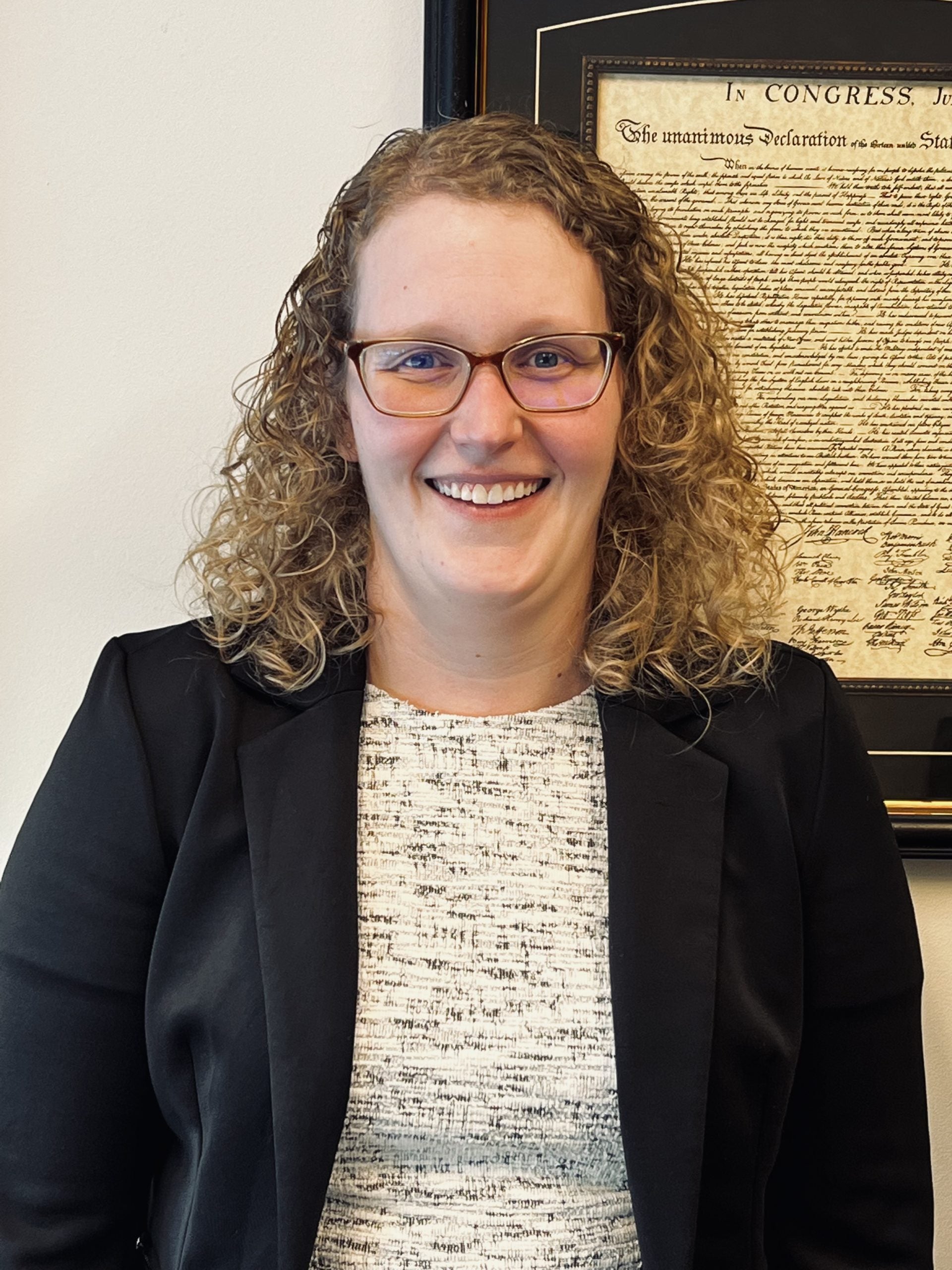 Alaina Fahley is a staff attorney with the Wisconsin State Public Defender’s office (WISPD). She works in the Appleton trial office, serving youth in counties throughout Northeastern Wisconsin. She received her B.A. in Social Welfare and Justice from Marquette University in 2010 and her J.D. from Marquette University in 2013.
Alaina Fahley is a staff attorney with the Wisconsin State Public Defender’s office (WISPD). She works in the Appleton trial office, serving youth in counties throughout Northeastern Wisconsin. She received her B.A. in Social Welfare and Justice from Marquette University in 2010 and her J.D. from Marquette University in 2013.
Alaina has been working with the WISPD office since 2013. She has specialized her practice in youth and family defense, representing youth involved in the child protection, juvenile justice, and adult criminal justice systems.
During her time at WISPD, she has presented at annual trainings to certify staff and private bar attorneys to take youth defense and family defense cases. In 2018, she completed the NJDC (now Gault Center) Juvenile Training Immersion Program Summer Academy in Washington, D.C. In 2021, she became a Certified YDAP Trainer. She serves on the State Bar of Wisconsin’s Children and the Law Board, serving as its chair from 2021-2022 and chair elect from 2023-2024.
She views youth defense as a vocation and racial justice as a necessary component of that role.
“I am excited to be an Ambassador for Racial Justice because we cannot ignore the cries of the children of color and leave power and disparity unchecked. I want to empower youth defenders and their clients to wield the power of truth and humanity against the power of injustice.”
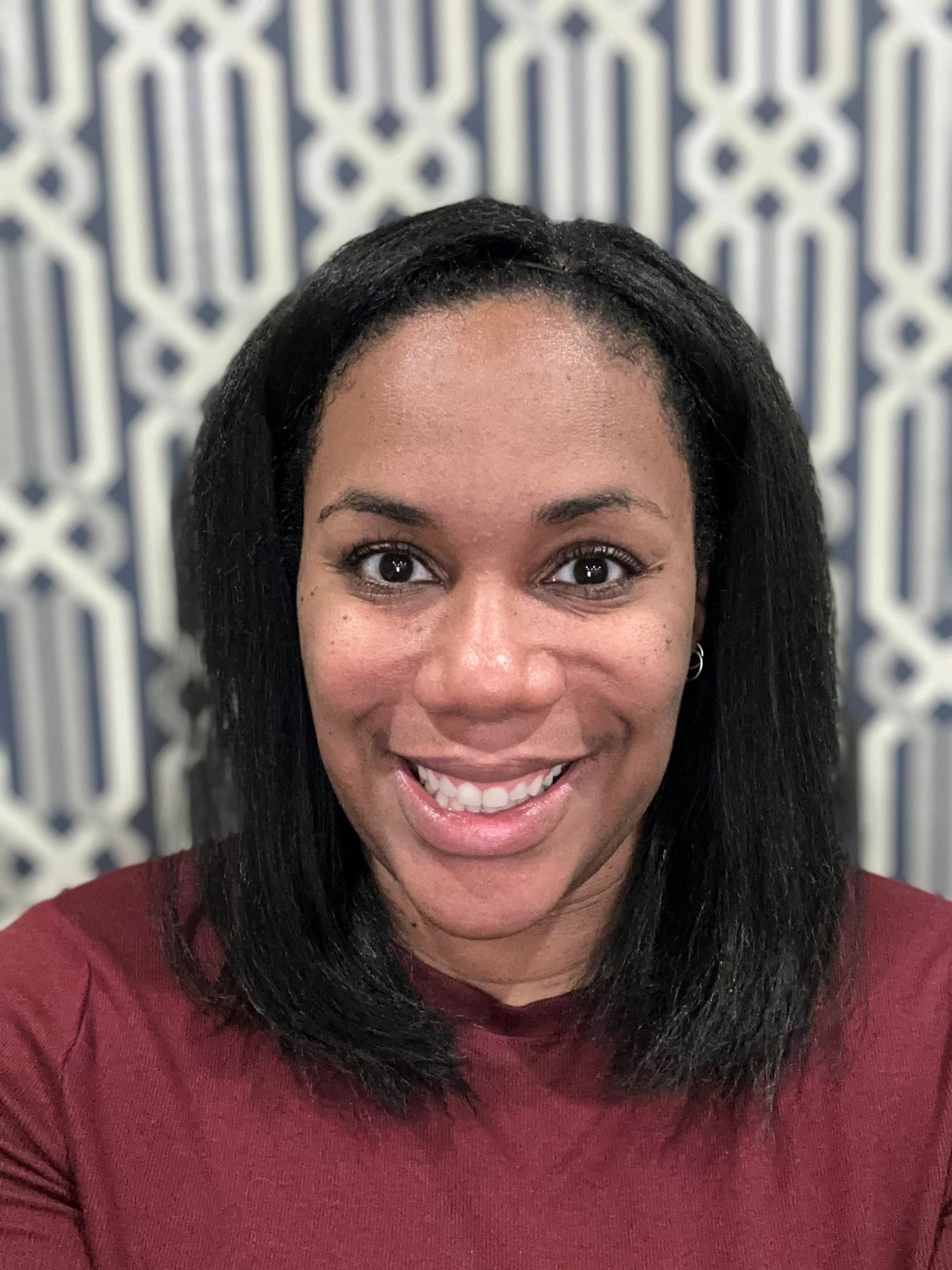 Melanie Lister is an Assistant Public Defender with the Juvenile Division of the Travis County Public Defender’s Office in Austin, TX. She received her B.S. from Cornell University in 2008 and her J.D. from Harvard Law School in 2013. Melanie held a variety of other positions related to children and families before she transitioned to juvenile defense. Prior to law school she was a teacher at an alternative school outside of New Orleans, LA. Once she graduated law school, Melanie represented parents and children in abuse and neglect proceedings and Child in Need of Services cases. Melanie has also worked as a guardian ad litem in abuse and neglect proceedings. Since joining what was then known as the Travis County Juvenile Public Defender Office, Melanie has served as an Adjunct Professor in the Juvenile Justice Clinic at the University of Texas School of Law. She is also a certified trainer with the Gault Center’s Youth Defender and Advocacy Program and is an alum of their JTIP (now known as YDAP) Summer Academy. Melanie is passionate about ensuring her representation is not only driven by her clients but also empowers her clients. She is always searching for creative ways to bridge the gaps between community organizations, schools, and courtroom advocates in hopes that one day she may work herself out of a job.
Melanie Lister is an Assistant Public Defender with the Juvenile Division of the Travis County Public Defender’s Office in Austin, TX. She received her B.S. from Cornell University in 2008 and her J.D. from Harvard Law School in 2013. Melanie held a variety of other positions related to children and families before she transitioned to juvenile defense. Prior to law school she was a teacher at an alternative school outside of New Orleans, LA. Once she graduated law school, Melanie represented parents and children in abuse and neglect proceedings and Child in Need of Services cases. Melanie has also worked as a guardian ad litem in abuse and neglect proceedings. Since joining what was then known as the Travis County Juvenile Public Defender Office, Melanie has served as an Adjunct Professor in the Juvenile Justice Clinic at the University of Texas School of Law. She is also a certified trainer with the Gault Center’s Youth Defender and Advocacy Program and is an alum of their JTIP (now known as YDAP) Summer Academy. Melanie is passionate about ensuring her representation is not only driven by her clients but also empowers her clients. She is always searching for creative ways to bridge the gaps between community organizations, schools, and courtroom advocates in hopes that one day she may work herself out of a job.
“It is certain, in any case, that ignorance, allied with power, is the most ferocious enemy justice can have.”- James Baldwin
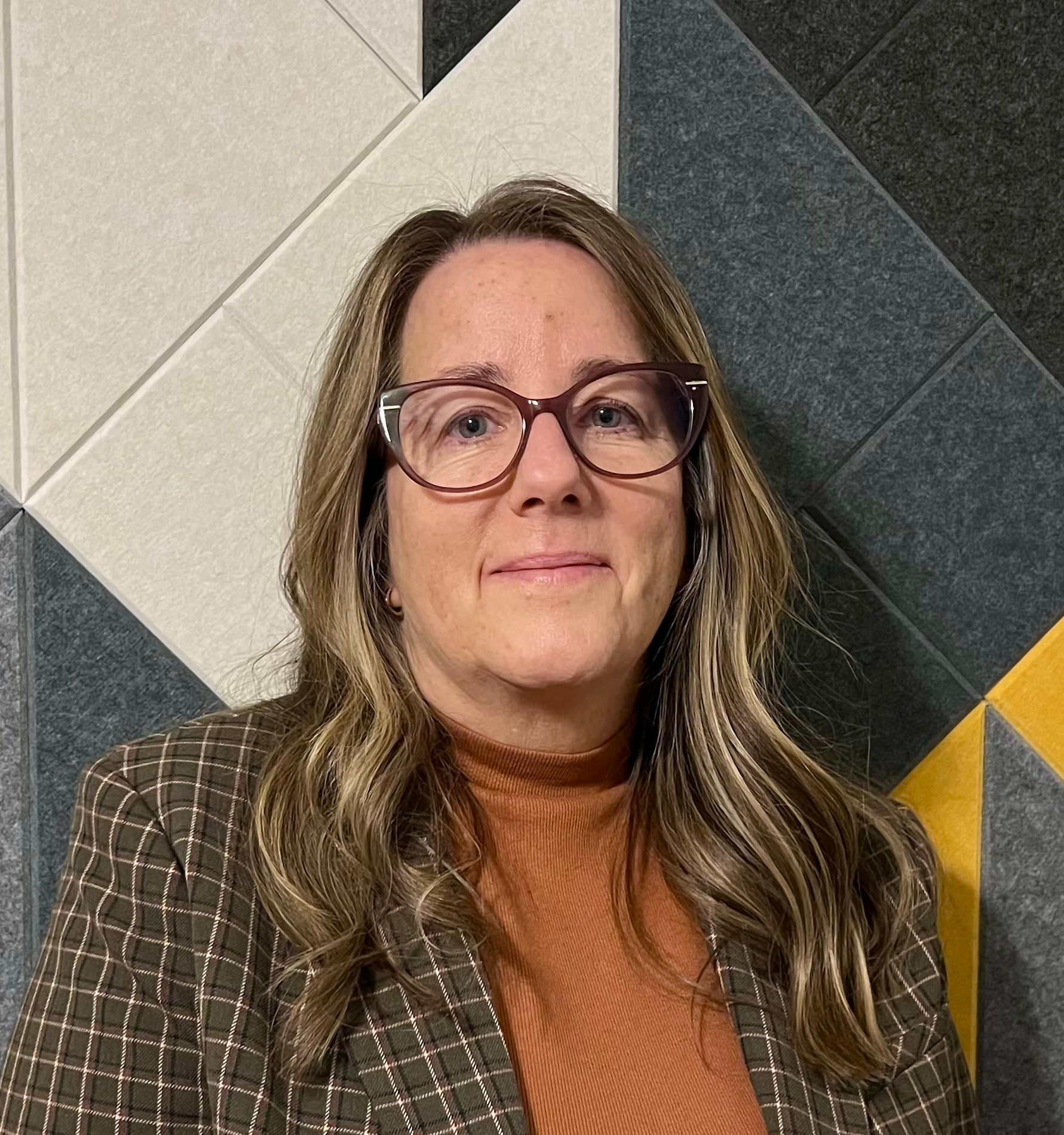 Myshell Lyday specializes in the representation of children and emerging adults in the Youth Justice system. A 2006 graduate of the University of Montana Law School, Myshell along with a fellow group of law and journalism students were awarded the Vern Klingman Meritorious Act Award for their work securing clemency for 78 men and women convicted, imprisoned, and fined under the Sedition Act during World War I. This project was the spark that lit the fire that continues to smolder within and drives her work.
Myshell Lyday specializes in the representation of children and emerging adults in the Youth Justice system. A 2006 graduate of the University of Montana Law School, Myshell along with a fellow group of law and journalism students were awarded the Vern Klingman Meritorious Act Award for their work securing clemency for 78 men and women convicted, imprisoned, and fined under the Sedition Act during World War I. This project was the spark that lit the fire that continues to smolder within and drives her work.
She joined the Montana Office of the Public Defender upon graduating and has worked directly for the OPD or contracted with them throughout her career. Today her work takes her all over the State of Montana defending children and emerging adults charged with criminal offenses.
Myshell has also worked to change the system through successful legislative campaigns including eliminating all fines and fees in the Youth Court, significantly restricting restitution, and eliminating shackling for youth while in court proceedings.
Myshell continues to challenge herself by exploring creative and sustainable solutions for justice involved by examining the connection between the justice system, indigenous cultural responses, and how nature does it within our ecosystem.
“This hand is not the color of yours, but if I pierce it, I shall feel pain. If you pierce your hand, you also feel pain. The blood that will flow from mine will be of the same color as yours, I am a man. The same God made us both.” – Chief Standing Bear
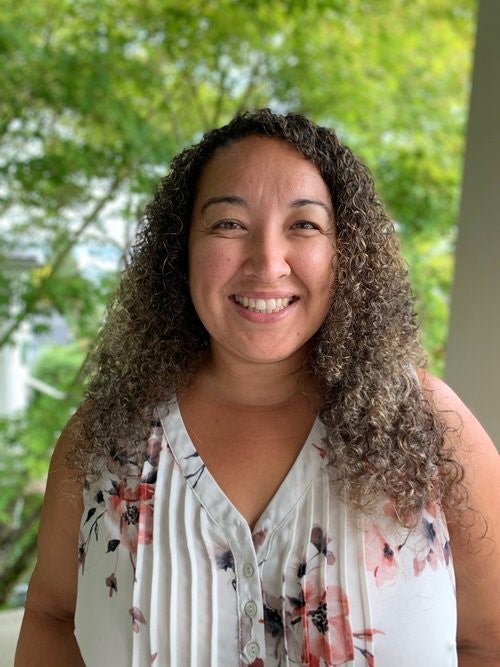 Alexandra “Alex” Narvaez is a Chicana/Latina who was born and raised in Seattle, Washington where she still lives today with her children and husband. She obtained her BA from the University of Washington and her JD from Seattle University. She has been a staff attorney at the Legal Counsel for Youth and Children (LCYC) for the past 9 years. Prior to that, she was a public defender for 7 years. She provides holistic representation to youth who face criminal charges in juvenile court and youth who find themselves in the child welfare system. She also represents youth in at-risk youth, child in need of services, and truancy cases. Throughout her time with LCYC, she has advocated as the attorney for youth applying for special immigrant juvenile status and provided civil legal aid to youth who are experiencing homelessness. She now serves as the lead attorney for LCYC’s Youth Access to Counsel team, part of a larger team with the Office of Public Defense. These attorneys provide 24/7 response to youth who are being interrogated by police in the field.
Alexandra “Alex” Narvaez is a Chicana/Latina who was born and raised in Seattle, Washington where she still lives today with her children and husband. She obtained her BA from the University of Washington and her JD from Seattle University. She has been a staff attorney at the Legal Counsel for Youth and Children (LCYC) for the past 9 years. Prior to that, she was a public defender for 7 years. She provides holistic representation to youth who face criminal charges in juvenile court and youth who find themselves in the child welfare system. She also represents youth in at-risk youth, child in need of services, and truancy cases. Throughout her time with LCYC, she has advocated as the attorney for youth applying for special immigrant juvenile status and provided civil legal aid to youth who are experiencing homelessness. She now serves as the lead attorney for LCYC’s Youth Access to Counsel team, part of a larger team with the Office of Public Defense. These attorneys provide 24/7 response to youth who are being interrogated by police in the field.
Alex was a participant in the 2023 Youth Defender Advocacy Program’s Summer Academy with the Gault Center and Georgetown Law Center. She was also a 2021 fellow for the Shriver Center Racial Justice Institute. She is a strong advocate for youth in a variety of system settings and routinely works with community programs to build stable support systems for youth as they work though and exit these systems.
“Every moment is an organizing opportunity, every person a potential activist, every minute a chance to change the world.” – Dolores Huerta
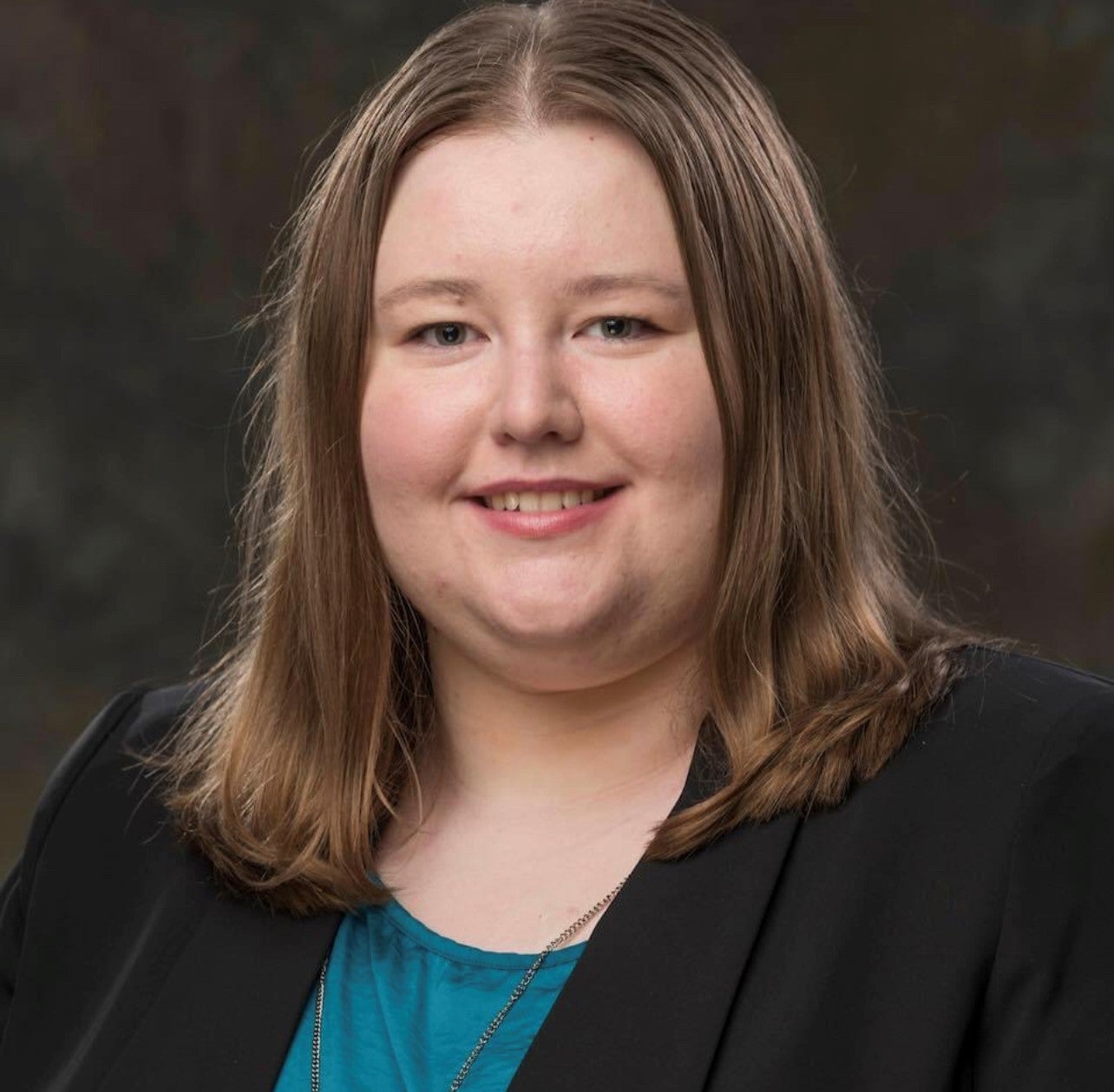 Emma Otterpohl is a Senior Deputy Public Defender for the Minnehaha County Public Defender’s Office in Sioux Falls, South Dakota. She graduated from Dakota Wesleyan University in 2015 with her bachelor’s degree in criminal justice and leadership and public service. Emma’s first real experience with juveniles in the criminal justice system came while in college when she volunteered with CASA, the Court Appointed Special Advocate Program in South Dakota’s First Judicial Circuit. Emma then went on to earn her J.D. from the University of South Dakota in 2018 and started her legal career later that year at the Public Defender’s Office. She has been representing juvenile clients for four years.
Emma Otterpohl is a Senior Deputy Public Defender for the Minnehaha County Public Defender’s Office in Sioux Falls, South Dakota. She graduated from Dakota Wesleyan University in 2015 with her bachelor’s degree in criminal justice and leadership and public service. Emma’s first real experience with juveniles in the criminal justice system came while in college when she volunteered with CASA, the Court Appointed Special Advocate Program in South Dakota’s First Judicial Circuit. Emma then went on to earn her J.D. from the University of South Dakota in 2018 and started her legal career later that year at the Public Defender’s Office. She has been representing juvenile clients for four years.
“Struggle is a never-ending process. Freedom is never really won, you earn it and win it in every generation.” – Coretta Scott King